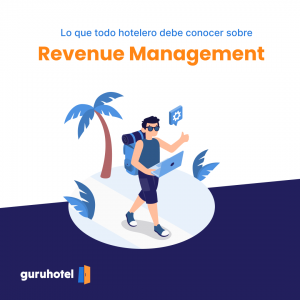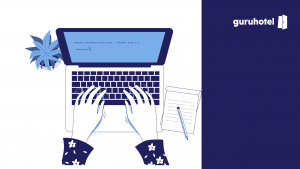With the crisis that has been unleashed due to the coronavirus pandemic, hotels around the world are suffering from the lack of global tourism. There is uncertainty about what can be done in this situation and especially, what will happen to the economy in quarantine periods.
Undoubtedly, these are times when as hoteliers we must conscientiously review expenses and maintain a balance between cutting excesses or expendable things, and not hurting the quality of customer service. If you don't know how to get started or what to take into account when making cuts, here are 10 ways you can achieve it without affecting your staff.
1. Reduce your payment for services
Reducing the cost of your service payment is a great way to reduce expenses. For this you must review the facilities of your hotel, see what changes can be made, for example, use LED lights, sensors so that you do not need to have the lights on all the time and keep the consumption of air conditioning or heaters under control. It is very important that check for leaks or overspending damage of water, electricity or gas. And remember to keep lights, air, and any electrical appliances off in rooms that aren't working. Times of low occupancy can be a good time to maintain rooms or areas that require it. If you do not do it frequently this could affect you in the long term, since it can generate higher expenses if there are failures in either your electrical or water system.
2. Pay attention to small expenses
Expenses that we assume as necessary can often be reduced if we pay attention to details. For example, asking your clients to reuse their towels during their stays can reduce laundry costs if you do it through an external service or even save electricity and water if you do it in your own facilities. This small detail could mean up to 17 percent of monthly savings.
3. Propose flexible work hours
Especially in these moments it does not make sense to have your staff all the time. In general, you should have flexible working hours to have more staff in times of high demand and reduce hours in low season. Have effective communication with your staff what tasks need the highest priority at this time, for example, sanitizing, cleaning and disinfecting rooms and common areas. Just because there are fewer guests at your hotel doesn't mean there is no work to be done on the premises.
4. Choose budget-friendly marketing strategies
It is not advisable to run out of budget or take a marketing strategy out of your picture. You can stop allocating resources to the large traditional channels such as spectacular or radio. But you can focus on other more budget-friendly strategies, like generate quality content on your own blog or website and share it on your social networks. You don't have to pay exorbitant amounts for good quality SEO. Remember that in this time of contingency there are more people than ever consuming content on social networks. Therefore, if you invest in creating it, you can develop a relationship with potential clients interested in staying with you in the future.
5. Check your food inventory
It is important that with less occupation you review your inventory of food and beverages and reduce what is not needed. Too check if your menu has ingredients that are increasing in price and make adaptations if necessary.
6. Allow your staff to do different tasks
It is a good idea that when you train your staff, you do it for different tasks to be carried out, in this way they can focus on what is a priority beyond the main position they have. This is even useful in case any of them must take vacations or days off due to health problems, so that there is always someone who can cover them. Ask them about their interests and preferences for tasks they want to doFor example, a waiter who can also be a host or a bartender.
7. Create loyalty programs
It seems difficult in times of coronavirus to create a new loyalty program, however, it can be very useful for customers to decide do not cancel their reservations and prefer to reschedule their trips. Remember that dramatically lowering your costs can have long-term effects, so don't be tempted to do so to attract customers. Through a loyalty program you can offer them a free night if they stay a certain number of days or give them breakfast or complementary meals during their stay.
8. Take care of your staff
Remember that the crisis will not last forever and when it passes you will need your entire team so that your hotel is operating at full capacity as soon as possible. If you let them go, not only could you be hurting the local economy, you will also need Hire inexperienced new employees and invest back in their training. If your employees know how to provide a good service, their experience will be essential to keep the customers who arrive at your hotel happy once everything returns to normal, do not risk giving a bad impression with poorly trained staff.
9. Use technology to your advantage
Instead of having a sales team or spending too much time doing them, you can have a Property Management System (PMS) that allows you to manage different areas of your business without having to pay full-time fees. Thanks to a PMS you can position your hotel and increase your online presence to make it highly competitive. This translates into more clients, more profits, and by using efficient technology you save costs both in fees and in other systems that are more expensive and less useful. A time of crisis may be the best time for you to have extra help in managing your hotel and use technology to automate processes and tasks.








